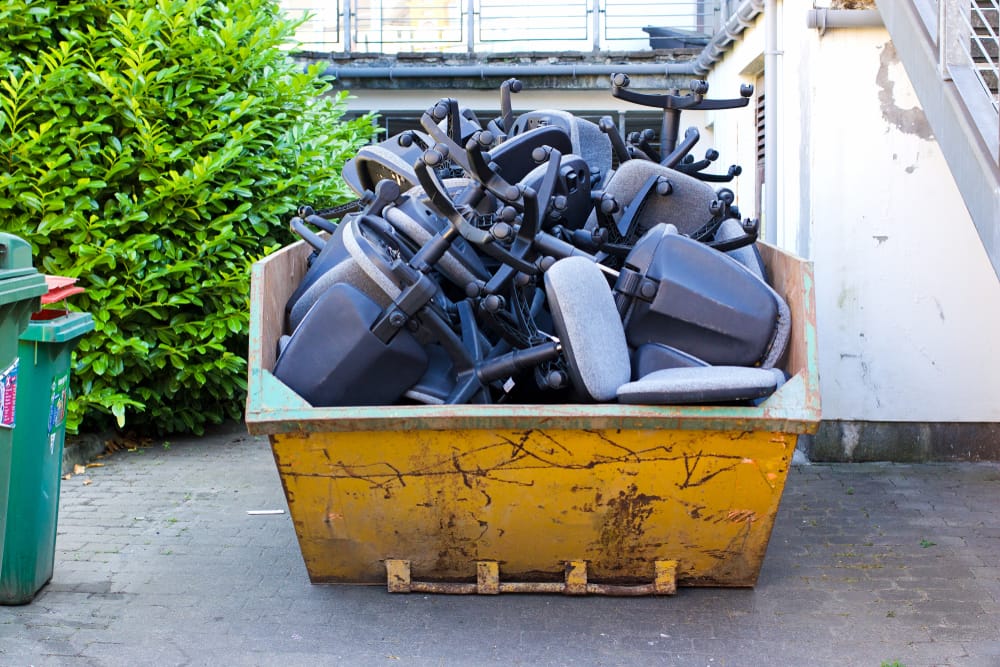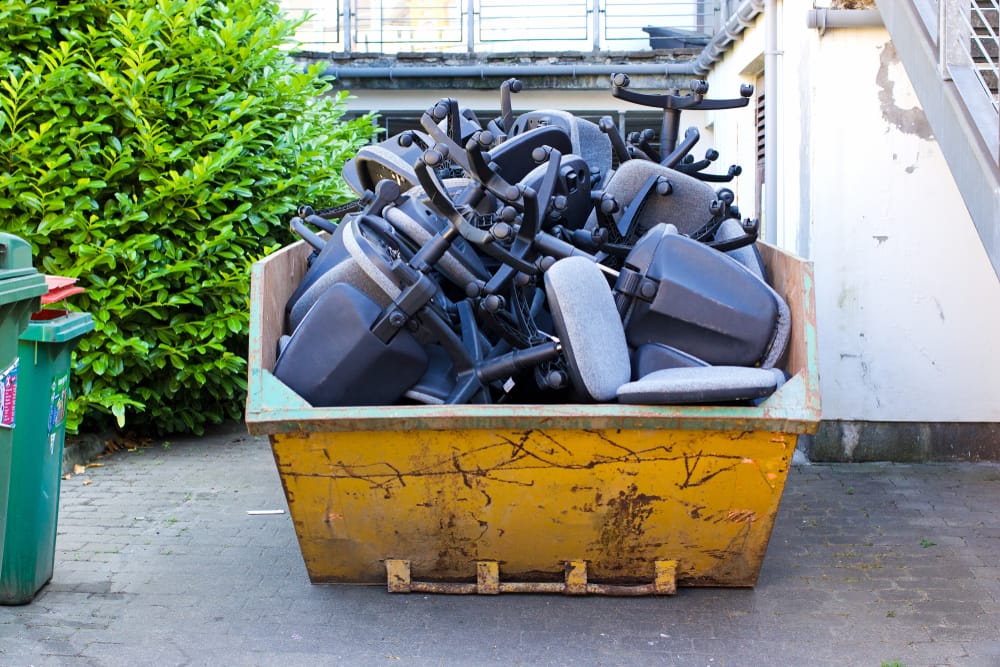No matter the size of your business, the amount of waste that comes from packaging of equipment to old and broken office furniture can quickly become overwhelming. Office space can become cluttered and be detrimental not just to productivity but can prevent expanding operations if there’s no space to move into. That’s why many businesses that notice their waste piling up may need to conduct a thorough spring-cleaning overhaul of their office space.
It can be difficult to assess the size of skip to hire as it’s important to have enough space to dispose of exactly what you need to get rid of. This is why we’ve created this guide to calculating and choosing a skip size that suits your business waste management needs.
Conducting a waste audit
Before even looking at skips, it’s important to conduct a waste audit of what your business produces. This acts as an inventory of waste rather than products and can outline shortcomings when it comes to disposing of specific waste. It can also identify trends in what you’re producing, which could contribute to changing the way you look at production and reassessing business processes.
It’s important to know what category your waste falls into when it comes to your skip selection and collection. Improper waste disposal can actually result in prosecution by the UK government in serious cases, so knowing what can be put in the skip can be crucial to avoiding legal ramifications which cannot just mean financial impacts, but can result in reputation damage as well.
Deciding your timeframe – rolling or one-off
Depending on the amount of waste you have and your timeframe for cleaning, a one-off hired skip may not be enough. In many cases, organising rolling collections every week or fortnight could be a more efficient option for making sure that all waste is removed from your office, and nothing is left over. This is why monitoring your waste production is important as it will influence how you scale your collection.
Scott Hawthorne from Skips & Bins, leading suppliers of commercial waste collection in the UK, has emphasised the importance of small and medium-sized enterprises (SMEs) monitoring the amount of waste produced: “What many SMEs may not realise about waste management is that scaling can be costly, and cost becomes an afterthought. This is particularly true when you consider that the media has told them that collection costs less when the reality is it could be as much as 60 or 70% more.
“Waste auditing and management from businesses is fantastic, but making the decision around spend is an important factor. You might not feel like you’ve got a lot of waste to remove from your office, but one big skip will always be more cost-effective than three one-off small skip collections.”

6-yard skips
6-yard skips are an all-round skip option, as the size is great for both commercial and domestic options. Traditionally by builders, they’re often found on construction sites and driveways as they’re large enough to hold a significant amount of waste without taking up too much space.
These skips can have a capacity of around 65 bin bags full of rubbish. Smaller businesses can utilise this skip size for clear-outs of everything from packaging waste to broken office furniture. It’s the most versatile of all skip options available.
8-yard skips
For larger clear-outs and renovations, 8-yard skips are the right option to deal with bulkier waste and debris that’s created. These skips can manage upwards of 80 full bin bags and as much as 5,000 kg of all kinds of waste from lightweight waste to heavier materials like rubble and concrete debris from full renovations.
12-yard skips
For much larger projects, 12-yard skips are the ideal choice for the disposal of significant amounts of waste materials. Holding around 120 full bin bags, the waste materials it can take range from plain packaging and plastics to metal and wood. With the larger options of skips, choosing to have your waste collected on a rolling basis can help manage the scale of your waste.
The size of skip that you hire will come down to the scale of waste you produce, which is exactly why it’s so important to audit your waste production so you can understand what you need to accommodate. Not only does this help to dispose of the full waste amount but it also helps to keep you within budget and prevents overspending on waste collection.








